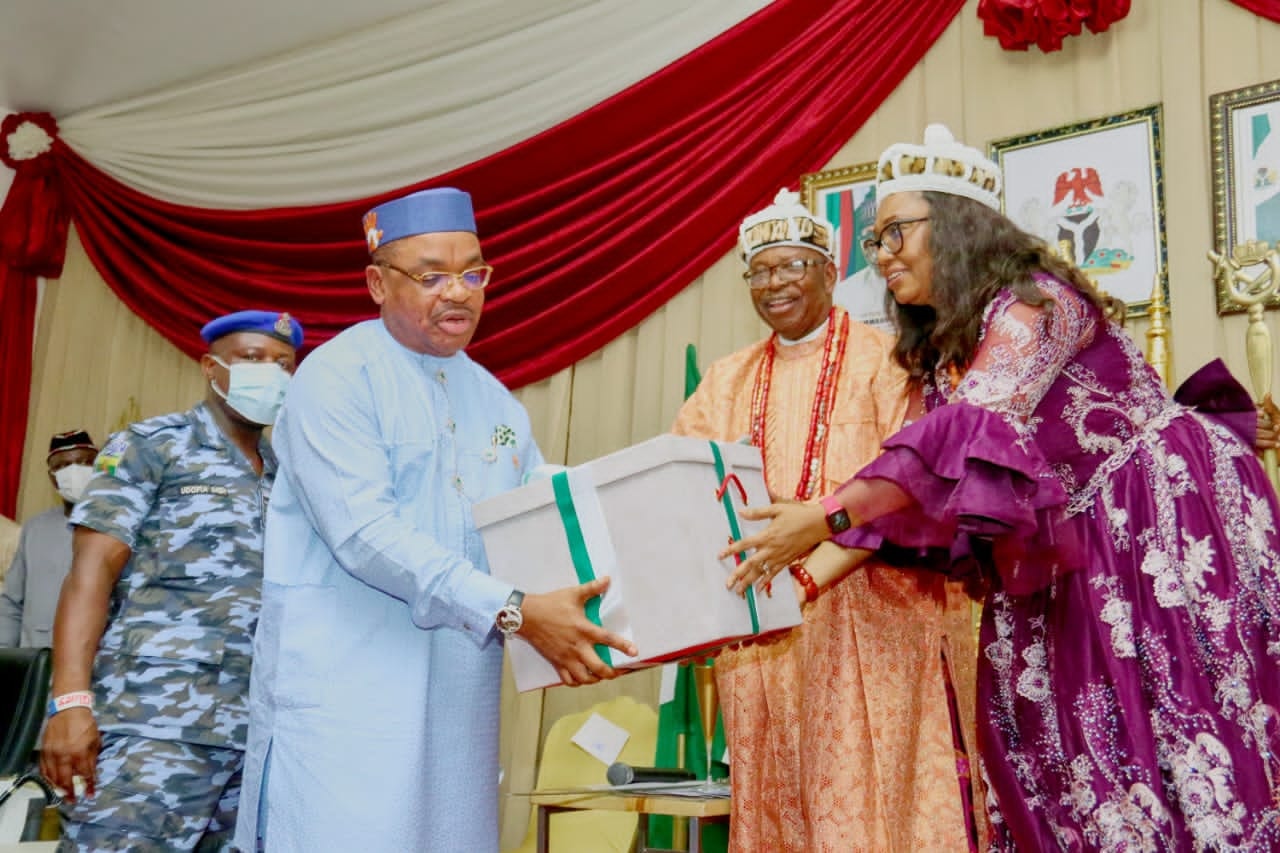Niger Delta
Emmanuel Charges Elites On Community Dev

Governor Udom Emmanuel of Akwa Ibom has called on elites and other privileged individuals in the state to contribute to the development of their communities.
Emmanuel said this during the end of the year get-together and award of chieftaincy titles to deserving sons of Ibiono Ibom Local Government Area of Akwa Ibom on Tuesday.
The governor, who was represented by the Commissioner for Works and Fire Service, Prof. Eno Ibanga, commended the paramount ruler for recognising those who had contributed to the development of their communities.
The News Agency of Nigeria (NAN) reports that the paramount ruler of Ibiono Ibom, His Royal Majesty Edidem Ime Udousoro Inyang conferred chieftaincy titles on Prof. Essien Antia-Obong, Mr Emmanuel Ekpa, Prof. Halo Eton and Mr Churchill Udoh and other deserving sons of Ibiono Ibom.
He said that when God helped people to rise in life to greater heights, they should look back and let the impact of God’s blessings on them be felt in their villages.
“I bring to you the warm regards of His Excellency Gov. Udom Emmanuel, who had asked me to represent him at this event as he attends to other matters that require his attention.
“I also bring the message of peace and unity to Ibiono Ibom because it is only God that enthrones people to leadership positions, so we need to maintain peace while God does his work.
“I congratulate the people that have been conferred with chieftaincy titles, as an appreciation of their outstanding contributions to human capacity development and other community services in their various communities.
“This is a two-way activity. You make your community feel your impact and they give you recognition in return, “ Ibanga said.
The commissioner charged the recipients of various chieftaincy titles to see the honour as a call for more impactful services to their communities.
Earlier, the traditional ruler said that for some years the traditional rulers’ council of Ibiono Ibom had not honoured anyone with chieftaincy title due to COVID-19 pandemic and the need to ensure that the honour was not made an all-comers’ affair.
He said that the personal profiles and records of community services of the chosen awardees reflected that they deserved the honour.
“Give honour to whom honour is due” is a truism that cannot be ignored and as such, the advisory council declared that a few of our sons be honoured this year.
“Their respective citations will show and convince you that they are fit and proper persons to be honoured.
“Their achievements, prominence and their nearness to Ibiono Ibom community is the reason for today’s gathering,” the traditional ruler said.
Speaking on behalf of the awardees, Mr Churchill Udo, Chief Executive Officer of Westgate Group of Companies, who was awarded the traditional title of ‘Isantim Ibiono’ expressed his appreciation to the state government for the peace enjoyed in state.
Churchill thanked the paramount ruler for conferring on them the chieftaincy titles, saying that the gesture would spur them to do more.
Niger Delta
Eno Recommits To Private Sector Investments
Niger Delta
Delta Prioritises Primary Healthcare Over Flyover Projects
Niger Delta
C’River Assembly Seeks Crackdown On Drug Abuse
-

 Politics3 days ago
Politics3 days agoAPC Releases Adjusted Timetable For Nationwide Congresses, Convention
-
Sports3 days ago
DG NIS Wants NSC Board Constituted, Seeks Increased In Funding
-

 Business3 days ago
Business3 days agoCustoms Seek Support To Curb Smuggling In Ogun
-

 Sports3 days ago
Sports3 days agoSWAN Rivers Set-up Five Functional Committees
-
News3 days ago
Police Bust Kidnapping Syndicate In PH
-

 Featured3 days ago
Featured3 days agoINEC Proposes N873.78bn For 2027 Elections, N171bn For 2026 Operations
-
Sports3 days ago
NSC Disburses N200m Training Grants To 26 Athletes
-
Sports3 days ago
‘NTF Will Build On Davis Cup Success For Brighter Future’

